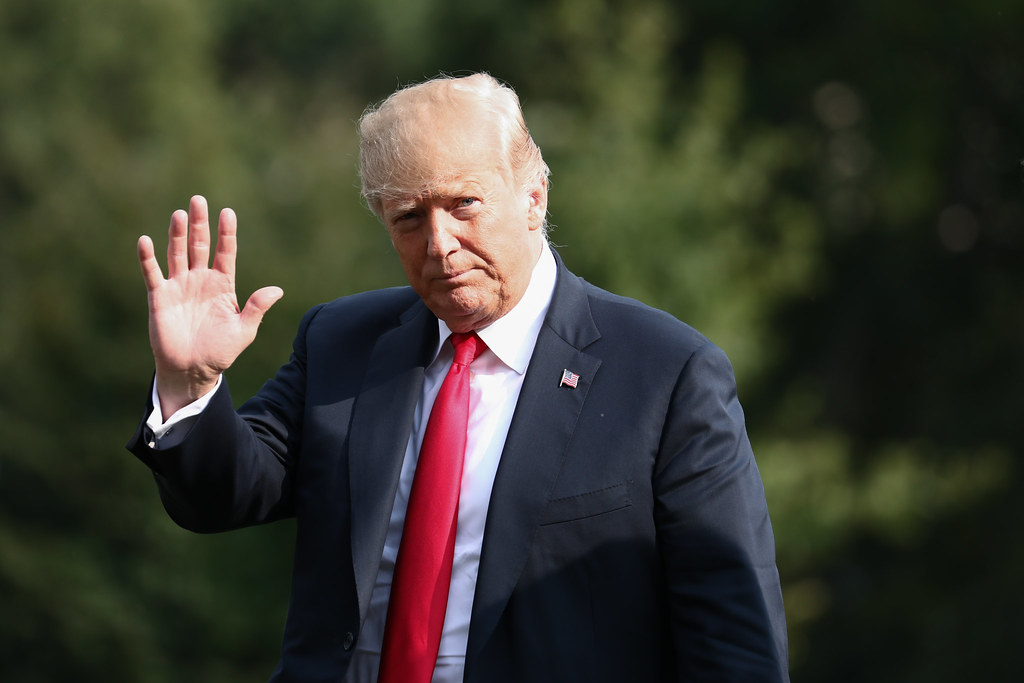Trump Impeached By House of Representatives on December 18th
45th President Donald Trump has become the third president in history to be impeached. The Live Wire details the journey of how the House of Representatives decided this momentous and consequential event.
December 19, 2019
After a 6-hour debate on Wednesday, December 18th, the House of Representatives voted to impeach President Trump on both articles of impeachment. The articles were anticipated to pass because the majority of the House is Democrats. The vote count was majorly along party lines with only 2 Democrats voting against the first article (abuse of power) and 3 Democrats voting against the second article (obstruction of justice). The total vote counts for each article is 230 (yes) – 197 (no) and 229 (yes) -198 (no).
The articles of impeachment were revealed on Tuesday, December 10th, and outlined the charges of abuse of power and obstruction of Congress. On Sunday, December 15th, the House Judiciary Committee released a report, elaborating on and slightly amending the articles of impeachment against President Donald Trump.
The first charge (abuse of power) refers to the July 25th phone call President Trump had with the new President of Ukraine, Volodymyr Zelenksy, and the course of conduct and scheme of events illustrated by the call.
“Using the powers of his high office, President Trump solicited the interference of a foreign government, Ukraine, in the 2020 United States Presidential election,” wrote House Democrats. “He did so through a scheme or course of conduct that included soliciting the Government of Ukraine to publicly announce investigations that would benefit his reelection, harm the election prospects of a political opponent, and influence the 2020 United States Presidential election to his advantage.”
In the House Judiciary Committee’s report, House Democrats continued, “While there is no need for a crime to be proven in order for impeachment to be warranted, here, President Trump’s scheme or course of conduct also encompassed other offenses, both constitutional and criminal in character, and it is appropriate for the Committee to recognize such offenses in assessing the question of impeachment. President Trump’s abuse of power encompassed both the constitutional offense of ‘Bribery’ and multiple federal crimes. He has betrayed the national interest, the people of this Nation, and should not be permitted to be above the law. It is therefore all the more vital that he be removed from office.”
While these additional allegations did not surface as a specific article, they were additional context for the abuse of power charge.
In the July 25th phone call, House Democrats claim that President Trump pressured President Zelensky into investigating political opponent Joe Biden, evidenced in the White House transcript of the phone call. During the same time, they also claim that he withheld apportioned military aid and a White House visit for President Zelenksy.
This phone call has been at the center of impeachment hearings after a whistleblower, an anonymous person who reports suspicious activity of another, came forward with complaints about the conduct in the phone call.
The whistleblower report, which was delivered to Michael Atkinson, the Inspector General of the Intelligence Community, describes, “the President of the United States is using the power of his office to solicit interference from a foreign country in the 2020 U.S. election.”
What the whistleblower is referring to is the possible quid pro quo President Trump offered to President Zelensky (“Quid pro quo” means “this for that” in Latin). The quid pro quo in question is if President Trump withheld appropriated military aid and an official visit to the White House from Ukraine in exchange for the Ukrainian government to launch an investigation into a political rival.
The “appropriated” part of the military aid is significant because that means that money was congressionally approved in the national budget this year. And that means the money has to be given to Ukraine, otherwise it’s a federal crime called impoundment.
House Democrats and critics of the President’s behavior in the phone call believe that the wording in the phone call can lead to the assumption that President Trump was pressuring President Zelensky, specifically noting the phrase, “I would like you to do us a favor though”.
“This is how a mafia boss talks: ‘What have you done for us? We’ve done so much for you, but there’s not much reciprocity. I have a favor to ask,'” House Intelligence Committee Chair Adam Schiff remarked at a press conference on September 25th. “And what is that favor? Of course, that favor is to investigate [Trump’s] political rival – to investigate the Bidens.”
The investigation President Trump allegedly desired would presumably focus on corruption and then former Vice President Joe Biden’s role in getting Ukrainian prosecutor Viktor Shokin removed from office in 2015 after Ukraine had just overthrown a pro-Russian government.
The second offense (obstruction of Congress) is about President Trump’s conduct during the impeachment.
“When the president got caught,” Schiff said, “he committed his second impeachable act.”
During the impeachment inquiry, the Trump administration directed many aides in the White House not to testify. Notable names that did not testify include Rick Perry, former Energy Secretary and one of the “three amigos” that ran President Trump’s policy in Ukraine, and Rudy Giuliani, the president’s personal attorney and a key player in running President Trump’s relations in Ukraine in what some call an “irregular diplomatic channel”.
“I am fighting for future Presidents and the Office of the President. Other than that, I would actually like people to testify,” President Trump tweeted in response.
The other two of the “three amigos” did testify. Kurt Volker, the former State Department envoy to Ukraine, and Gordon Sondland, the U.S. ambassador to the European Union, both testified in November. Sondland testified on November 20, 2019 and presented some of the most damaging evidence against the president.
“I know that members of this committee frequently frame these complicated issues in the form of a simple question: Was there a quid pro quo?” Sondland said. “As I testified previously, with regard to the requested White House call and the White House meeting, the answer is yes.”
However, later in his testimony, Sondland explained that the quid pro quo didn’t include the military aid, only the White House visit. He also inferred that President Zelensky didn’t have to perform the investigation, only announce it.
“[Zelenksy] had to announce the investigations. He didn’t actually have to do them, as I understood it,” Sondland said.
Both Volker and Sondland said that they didn’t connect the quid pro quo to an investigation into the Bidens during their sworn testimony before the House. They both recalled that they thought it was into Burisma and the corruption in the government.
“As you know from the extensive, real-time documentation I have provided, Vice President Biden was not a topic of our discussions,” Volker said. “In hindsight, I now understand that others saw the idea of investigating possible corruption involving the Ukrainian company Burisma, as equivalent to investigating former Vice President Biden. I saw them as very different — the former being appropriate and unremarkable, the latter being unacceptable.”
While he has been impeached, President Trump now has to go through a trial in the Senate to determine if the president should be removed from office. With the majority party in the Senate Republicans, the chances of him being removed from office are very slim since ⅔ of the Senate needs to approve removal. The date for the Senate trial is expected to start in early January because Congress is going on recess (a temporary halt) for the holidays.
Donald Trump will stay in office for the rest of his term, unless the Senate removes him, and can still run for reelection in 2020.

